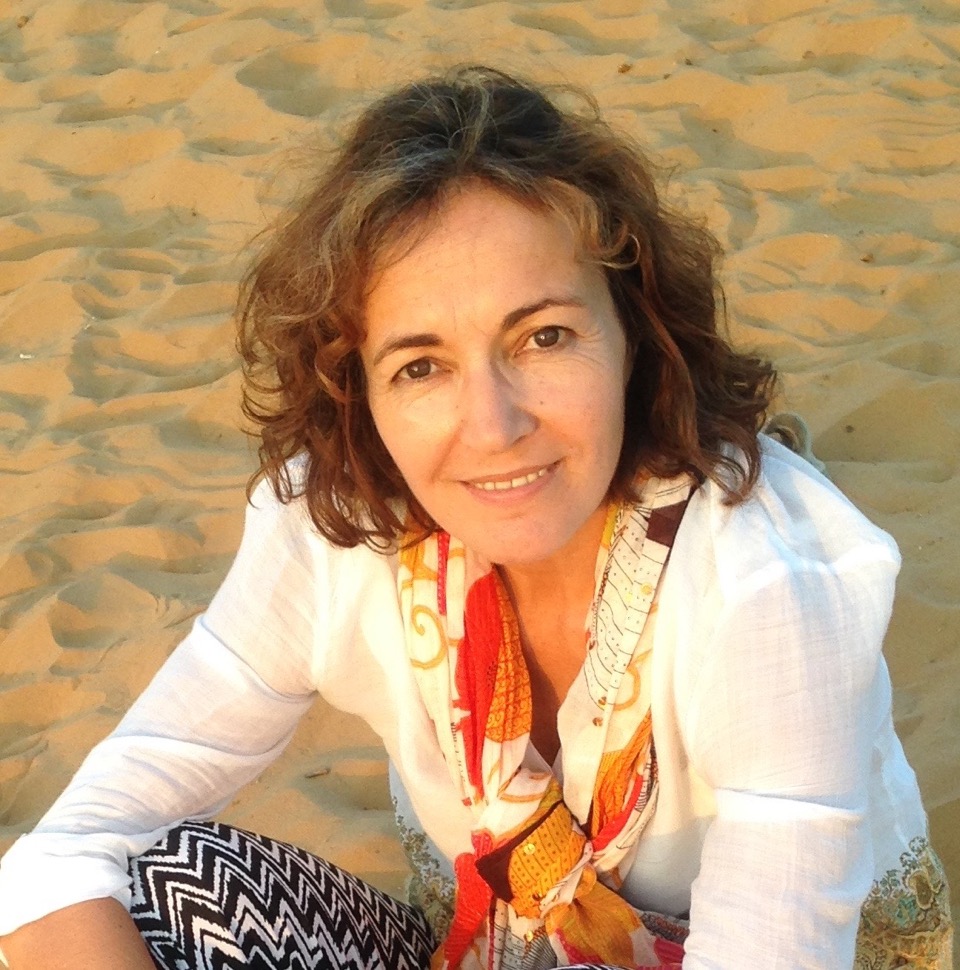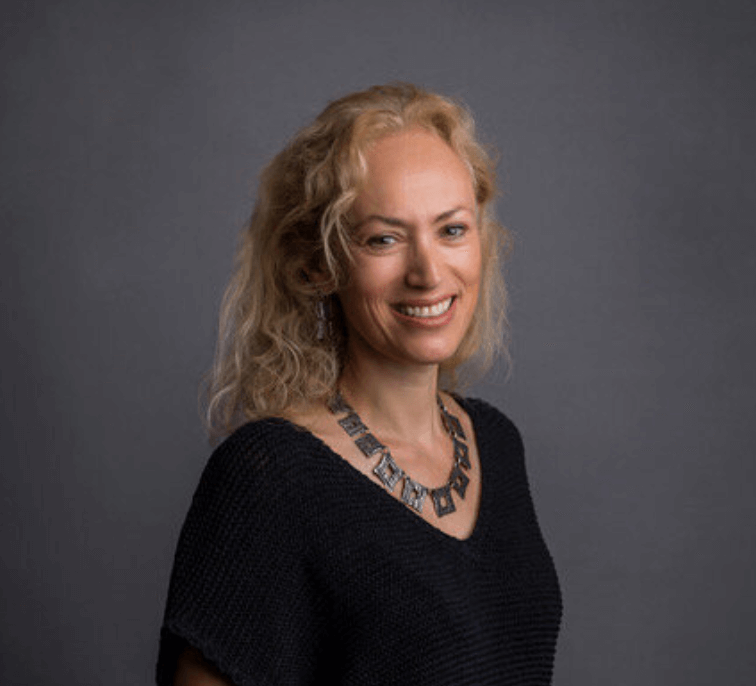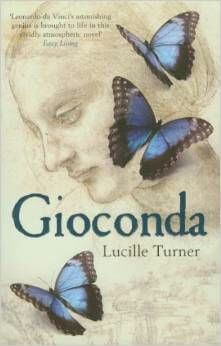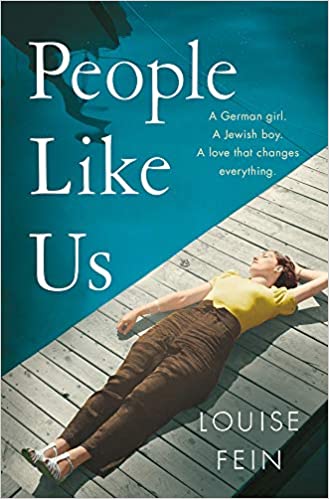Blog Post: Lucille Turner Q&A with Louise Fein
Q&A with Louise Fein

Lucille Turner
LUCILLE TURNER’s first book, Gioconda, was published by Granta Books in 2011. Gioconda was about the life of Renaissance genius Leonardo da Vinci; it went on to win the Hislibris prize for historical fiction and was translated into several languages.
Her second historical novel, The Sultan, the Vampyr and the Soothsayer, was awarded third prize in the Best Fiction category of the Independent Publisher Book Awards 2017. Lucille has a Master’s degree in Comparative Literature and she lives in Dorset.

Louise Fein
Louise Fein was born in London and holds an MA in Creative Writing from St Mary’s University. People Like Us is her first novel, inspired by her family history and the alarming parallels she sees between the early 1930’s and today. The book is also published under the title Daughter of the Reich in the USA and Canada and is being translated into ten languages. Louise lives in the Surrey countryside with her husband, three children and small dog. She is currently working on her second book, also a work of historical fiction. Read more.
Lucille Turner’s Q&A with Louise Fein
1) Are there any recurrent themes in your writing?
Lucille Turner’s Answer
I think there are, although I don’t specifically aim to incorporate them in a new book. I suppose they just appear. Perhaps subconsciously, you tend to gravitate towards the issues that matter to you, or those that form part of your own experience of life. One of the themes I seem to keep coming back to, in one way or another, is father/son relationships. I find them challenging and complex, partly because I think men find it hard to work them out. They seem to be loaded with emotions – and many of them stifled.
Louise Fein’s Answer
Definitely! I think most authors will find, even if unintentionally, themes recur in their writing. There are definitely political elements to both my books. I’m interested in how society views and treats people considered to be ‘different’ in some way, and why they behave as they do. Relationships feature quite heavily – not just romantic, but between friends, siblings, parent and child, etc. There is also a feminist thread which crept into both books!
2) Why did you choose to write about a particular time period?
Lucille Turner’s Answer
For me, it was more a case of homing in on a particular historical figure. All of my historical novels, including those not yet published, focus on significant figures in history, those individuals who have somehow changed the course of history. I am first attracted to the person, then to the place and time.
Louise Fein’s Answer
My first novel was always going to be set in this time period because I wanted to explore the experience of my father’s family who escaped from 1930’s Nazi Germany and came to the UK as refugees. But my interest was not to write about the holocaust, but rather the events and the psychology which led to it. My second book is also early twentieth century. There was so much social change and radical political thought at this time that it makes a fascinating time period in which to set a novel.
3) Did you encounter any specific difficulties with writing about a certain time period or setting?
Lucille Turner’s Answer
You have to do your research. I wrote a novel once about Ancient Britain. It hasn’t yet been published, but it did take me years to research. When there is very little in the way of historical records to go on, it’s a double-edged sword. On the one hand it gives you more freedom to write what you like, but on the other you have very little to go on, and that can be unsettling.
Louise Fein’s Answer
My debut novel is set in Leipzig, Germany, and I had never visited it prior to starting work on my novel. I felt strongly I needed to go there in order to make it as authentic as possible. I did visit more than once during the course of my research and this was vital for soaking up the atmosphere; understanding the layout of the city and ensuring that the character of the place could be conveyed as realistically as possible in the novel. I did find, however, that many people didn’t speak English and to interview certain experts, a relative had to accompany me to act as translator!
4) How do you adapt the dialogue in your books for a modern audience, whilst keeping it authentic to the time period and/or setting?
Lucille Turner’s Answer
I like to read documents from the period I am writing in. Letters are good, and so are journals. They give you a feel for the intonation and vocabulary. After that, most dialogue is in any case, as far as fiction goes, a question of ‘less is more’. Sometimes, with a first draft, I do tend to find that I have gone the other way though, and nothing’s being said!
Louise Fein’s Answer
I considered peppering the novel with German sayings, but since it is a book written in English, this felt at odds, so these are kept to a minimum. There is a balance in making the dialogue realistic for the period/setting in which the book is set, and the modern reader. For instance, a proper Leipzig family at the time would have considered it bad manners for the children to speak at the dinner table, but for the purposes of a modern audience, this would have felt stilted and wrong, so I let this go. I chose a sort of neutral language which felt appropriate. Ultimately it is fiction, so a certain amount of leniency is permitted.
5) How important is it as a historical fiction writer to visit the place in which the book is set?
Lucille Turner’s Answer
It’s not essential, but it’s nice. Places change with time. Visiting a place today often does little to evoke what was there before. This is especially true of urban locations. You can sometimes glean more from old photographs and historical record. Imagination makes up for what the eye cannot see. I do think, though, that when writing it’s important to get a general feel for a place at a certain time in history. That’s what setting is, place and time together. I went to Florence as I was writing Gioconda, and managed to find Leonardo’s ‘forgotten’ bottega, where he worked as an apprentice. That was evocative. But more evocative still was his birthplace, which has become a shrine. Because of the rural location, things had not changed all that much; you can step back in time and watch it all unfurl.
Louise Fein’s Answer
My first novel was always going to be set in this time period because I wanted to explore the experience of my father’s family who escaped from 1930’s Nazi Germany and came to the UK as refugees. But my interest was not to write about the holocaust, but rather the events and the psychology which led to it. My second book is also early twentieth century. There was so much social change and radical political thought at this time that it makes a fascinating time period in which to set a novel.
6) What motivates you to write?
Lucille Turner’s Answer
I have time on my hands 🙂 No, seriously, it’s my favourite way of communicating. You do need time though, and usually at the cost of other things.
Louise Fein’s Answer
It’s a bit like food. I don’t know what I’d do without it. It is my absolute dream job and I can’t imagine a time when I don’t write.
7) What is your writing routine?
Lucille Turner’s Answer
When I’m in the middle of a book project I always start early in the morning, every day including weekends. I usually do two or three hours, then sometimes go back later in the afternoon or early evening and do another couple if I can.
Louise Fein’s Answer
In normal life, I work during school hours. I prefer to write in the mornings when I’m freshest, and edit or catch up on admin and correspondence in the afternoon. During lockdown and home-schooling, it was difficult and I found myself working until late in the evenings. In the school holidays too, it’s harder to find the time so writing comes either in the early morning or late afternoon/evening.
8) Has the pandemic impacted what you are currently writing about?
Lucille Turner’s Answer
Yes. I wrote a new book during lockdown. Time well spent, for me. But I need to revise further. The book is not about the pandemic, but it’s darkly humorous, so maybe spiked with fear in some respects.
Louise Fein’s Answer
One benefit of writing historical fiction is that current events don’t directly impact what I am writing about. I did find a small reference, however, creeping into book two about the Spanish flu and social distancing, so on a subliminal level, perhaps it is there!
9) Do you always know how your book is going to end when you start it?
Lucille Turner’s Answer
No, not entirely. I usually have a vague idea but it always changes subtly.
Louise Fein’s Answer
With my first book, yes, I always knew the ending and in fact the last scene didn’t really change at all from the first time I wrote it, whereas the beginning changed multiple times. With my second book, I also knew the ending. I am currently waiting for edits for that one, so it might yet change! I’m in the very early stages of planning my third book, but the ending for that is more woolly, so I guess no, not always!
10) What are your three favourite books of all time?
Lucille Turner’s Answer
When I was a child I adored Watership Down by Richard Adams. I have also been a Tolkein fan and I love Marcovaldo by Italo Calvino. It’s hard to pick three books because I love so many books for many different reasons. I also read a great deal of non-fiction. I’m keen on the classics and I love Jane Austen, as many people do. I also like The Inheritors by William Golding. I’ve always loved Golding. The narrative of The Spire, another of his novels, opened my twenty-year-old eyes to a way of writing that was gripping and sparse. The Inheritors, which he wrote in 1955, was his second book and the subject matter is unusual, to say the least. It’s about Neanderthal man and his first encounter with the unruly, savage cousin that would bring about his extinction. Who writes about prehistory? Not many.
Louise Fein’s Answer
Tricky to distil down to three, but I’m going to go with: To Kill a Mockingbird, Harper Lee; Small Island, Andrea Levy, and The Kite Runner, Khaled Hosseini.
Books
The Sultan, the Vampyr and the Soothsayer
When Vlad Dracula is taken hostage with his brother by the Ottoman Sultan and his guards, even the palace soothsayer, the shrewd teller of fortunes, is unprepared for what he learns.
Gioconda
A solitary child, Leonardo’s only intimate is Lisa Gherardini, the girl who spies on him in his workshop. Spurned by his tutor, he is sent by his despairing father to Florence as an apprentice.
Louise Fein
‘Beautiful and absorbing – a vital story of kindness, and a reminder that humanity can flourish in the darkest of times’ Caroline Hulse, author of The Adults.
Schedule an Event
lucille@goofy-gauss.79-99-42-71.plesk.page
Contact Author
lucille@goofy-gauss.79-99-42-71.plesk.page



